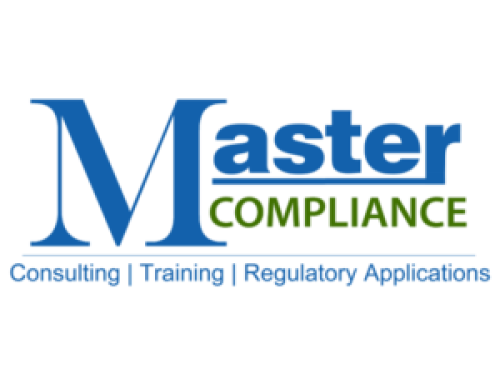The U.S. Treasury Department’s Financial Crimes Enforcement Network (“FinCEN”) has proposed rulemaking that would require registered investment advisers to establish anti-money laundering (“AML”) programs and to file suspicious activity reports (“SARs”). The new requirements, as proposed, may impose significant regulatory burden on certain investment advisers. In this blog post, we provide a summary of the proposal to help your firm assess the potential impact, if any, the new requirements would have on your firm’s business. We conclude by providing, as a reminder, a list of the limited AML requirements that currently apply to investment advisers.
FinCEN’s Proposes AML Requirements for Investment Advisers
On August 25, 2015, FinCEN issued a notice of proposed rulemaking that would require SEC-registered investment advisers to comply with many of the AML requirements that are currently imposed on broker-dealers. FinCEN proposed these rules after concluding that investment advisers are at risk of being used by money launderers, terrorist financiers, and other illicit actors seeking access to the U.S. financial system through a type of financial institution that is not required to maintain an AML program or file SARs. Although many investment advisers have voluntarily adopted AML policies and procedures, the proposed rules would create an explicit requirement for all SEC-registered investment advisers to have a written AML program. FinCEN is not proposing a customer identification program (“CIP”) requirement, but anticipates doing so in a subsequent rulemaking proposal. FinCEN has signaled that the current rulemaking proposal is the beginning of a series of new regulations intended to expand the AML requirements of investment advisers. State-registered investment advisers, though not covered by the proposed rules, may be targeted by FinCEN in subsequent rulemaking proposals.
Required Elements of an AML Program
Samsung Odin Download
The proposed rules would require every SEC-registered investment adviser to maintain an AML program that includes, at minimum, four required elements:
- AML Procedures. The investment adviser would be required to establish and implement policies, procedures, and internal controls reasonably designed to prevent money laundering and the financing of terrorist activities.
- Independent Testing. The AML program would be required to provide for independent testing to assess the investment adviser’s compliance with the proposed rules. Testing may be performed by a third party or by an employee, provided the employee has no involvement in the operation or oversight of the investment adviser’s AML program.
- AML Officer. The investment adviser would be required to designate at least one person as responsible for implementing and monitoring the AML program. The AML Officer must be knowledgeable concerning the investment adviser’s money laundering risks and its AML obligations.
- AML Training. The AML program would be required to provide for the training of the investment adviser’s employees. This training should cover the investment adviser’s AML obligations and provide job-specific guidance that helps employees identify “red flags” and other suspicious activity. Employees should receive training prior to or at the time they assume a position, and periodically as needed to update or remind them about their role in preventing and detecting money laundering.
Status of FinCEN’s Rulemaking Proposal
Public comments on the rulemaking proposal were due by November 2, 2015. The proposal generated 31 comments, which are available at www.regulations.gov (Docket ID: FINCEN-2014-0003). We expect FinCEN to use these responses to craft proposed rules, which will be submitted for comment before final rules are adopted.
Current AML Requirements
Although investment advisers are not currently subject to the full array of AML requirements that apply to broker-dealers and other financial institutions, investment advisers should take note that they are currently subject to some AML obligations:
- Office of Foreign Assets Control (“OFAC”) Sanction Programs. Investment advisers must comply with OFAC sanctions programs, which prohibit or limit transactions involving sanctioned countries and various categories of individuals and entities (such as narcotics traffickers and terrorists). Generally, an investment adviser must block or reject accounts, property, funds, and other assets when an OFAC-designated individual or entity is involved in a transaction.
- Specially Designated Nationals (“SDNs”). Investment advisers are prohibited from dealing with certain individuals and entities that are designated by the U.S. Treasury as SDNs. SDNs commonly fall into these categories: (1) terrorist organizations, (2) drug traffickers, (3) proliferators of weapons of mass destruction, or (4) persons designated as SDNs under OFAC sanctions programs. Your firm may use OFAC’s Sanctions List Search or FINRA’s OFAC Search Tool as a tool to help identify SDNs. It is a good practice to perform OFAC checks on clients and other persons with which your firm conducts business (such as intermediaries and counterparties).
- Reporting Requirements Pertaining to Currency and Certain Monetary Instruments. Investment advisers are required to comply with certain reporting requirements under the rules of the Bank Secrecy Act. Many investment advisers minimize the risk of becoming subject to these requirements by structuring their operations to avoid events that may trigger reporting obligations, such as the receipt of currency, money orders, traveler’s checks, and certain other types of monetary instruments.
- Report of Foreign Bank and Financial Accounts (“FBAR”). An investment advisers must file an FBAR if it holds a financial interest in or has signature or other authority over any financial account(s) in a foreign country, and the aggregate values of such accounts is more than $10,000.
- Suspicious Activity Reports (“SARs”). Although the proposed rules would require all SEC-registered investment advisers to file SARs, regulators have yet to adopt a rule that would subject investment advisers to this reporting obligation. However, because firms affiliated with a bank are currently subject to SAR requirements, a bank-affiliated investment adviser must file SARs in today’s regulatory environment. Investment advisers not affiliated with a bank may voluntarily file SARs to alert law enforcement of potential violations of law.
- AML Requirements of Other Countries. Investment advisers that conduct business outside of the U.S. may be required to comply with the AML requirements of foreign countries.
Concluding Thoughts
FinCEN is still in the early stages of the rulemaking process. We intend to monitor the status of this proposed rulemaking and update our readers throughout the rulemaking process. For now, we strongly urge you to make sure your firm’s compliance program is reasonably designed to achieve compliance with those AML requirements that currently apply to your firm based on the nature of its business and other relevant factors.




